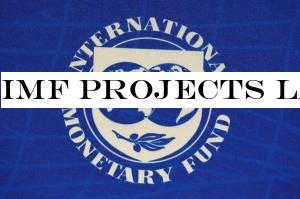INSUBCONTINENT EXCLUSIVE:
The Sri Lanka economy is recovering from the terrorist attacks last April, with GDP growth projected at 3.7 percent in 2020, the
International Monetary Fund (IMF) said after concluding staff visit to Sri Lanka.The statement also said that &Ambitious structural and
institutional reforms are needed to anchor policy priorities, bolster competitiveness and foster inclusive growth in Sri Lanka.&&Fiscal
prudence remains critical to support macro-economic stability and market confidence, amid high levels of debt and refinancing needs.& It
said.The staff team from the IMF led by Manuela Goretti visited Colombo during January 29 & February 7, 2020 to meet with the new
administration and discuss its policy agenda
At the conclusion of the staff visit, Ms
Goretti issued the following statement:
The IMF staff team had constructive discussions with the Sri Lankan authorities on recent economic
developments and the country economic reform agenda
Given the high level of public debt and refinancing needs in the country, ensuring macroeconomic stability calls for fiscal consolidation,
prudent monetary policy, and sustained efforts to build international reserves
Ambitious structural and institutional reforms remain critical to raise the country growth potential and promote inclusiveness.
The economy
is gradually recovering from the terrorist attacks last April
Real GDP growth is estimated at 2.6 percent in 2019
The recovery is supported by a solid performance of the manufacturing sector and a rebound in tourism and related services in the second
High frequency indicators continue to improve and growth is projected to rebound to 3.7 percent in 2020, on the back of the recovery in
tourism, and assuming that the Novel Coronavirus will have only limited negative effect on tourism arrivals and other economic activities
Inflation is projected to remain at around 4½ percent, in line with the Central Bank of Sri Lanka (CBSL) target
After a sharp import contraction in 2019, the current account deficit is expected to widen to nearly 3 percent of GDP in 2020.
Preliminary
data indicate that the primary surplus target under the program supported by the Extended Fund Facility (EFF) was missed by a sizable margin
in 2019 with a recorded deficit of 0.3 percent of GDP, due to weak revenue performance and expenditure overruns
Under current policies, as discussed with the authorities during the visit, the primary deficit could widen further to 1.9 percent of GDP in
2020, due to newly implemented tax cuts and exemptions, clearance of domestic arrears, and backloaded capital spending from 2019
Given risks to debt sustainability and large refinancing needs over the medium term, renewed efforts to advance fiscal consolidation will be
essential for macroeconomic stability
Measures to improve efficiency in the public administration and strengthen revenue mobilization can help reduce the high public debt, while
preserving space for critical social and investment needs
Advancing relevant legislation to strengthen fiscal rules would anchor policy commitments, restore confidence, and safeguard sustainability
over the medium term.
The CBSL should continue to follow a prudent and data-dependent monetary policy and stand ready to adjust rates to
evolving macroeconomic conditions
Net International Reserves fell short of the end-December target under the EFF-supported program in 2019 by about $100 million amid market
pressures after the Presidential elections and announced tax cuts
However, conditions have since stabilized
Renewed efforts are needed to rebuild reserve buffers to safeguard resilience to shocks, under a flexible exchange rate
Approval of the new Central Bank Law in line with international best practices is a critical step to further strengthen the independence and
governance of the CBSL and support the adoption of flexible inflation targeting.

